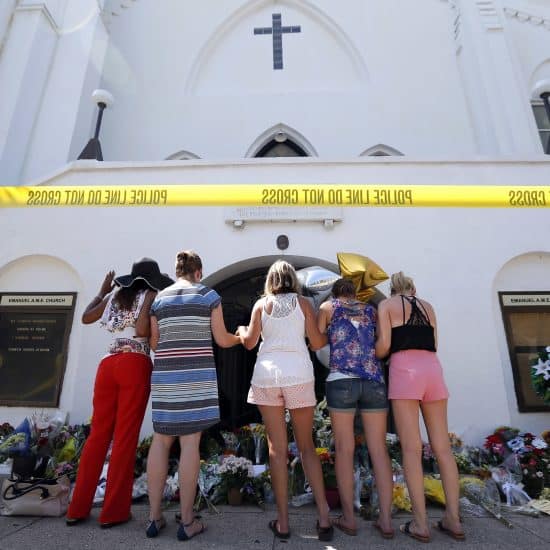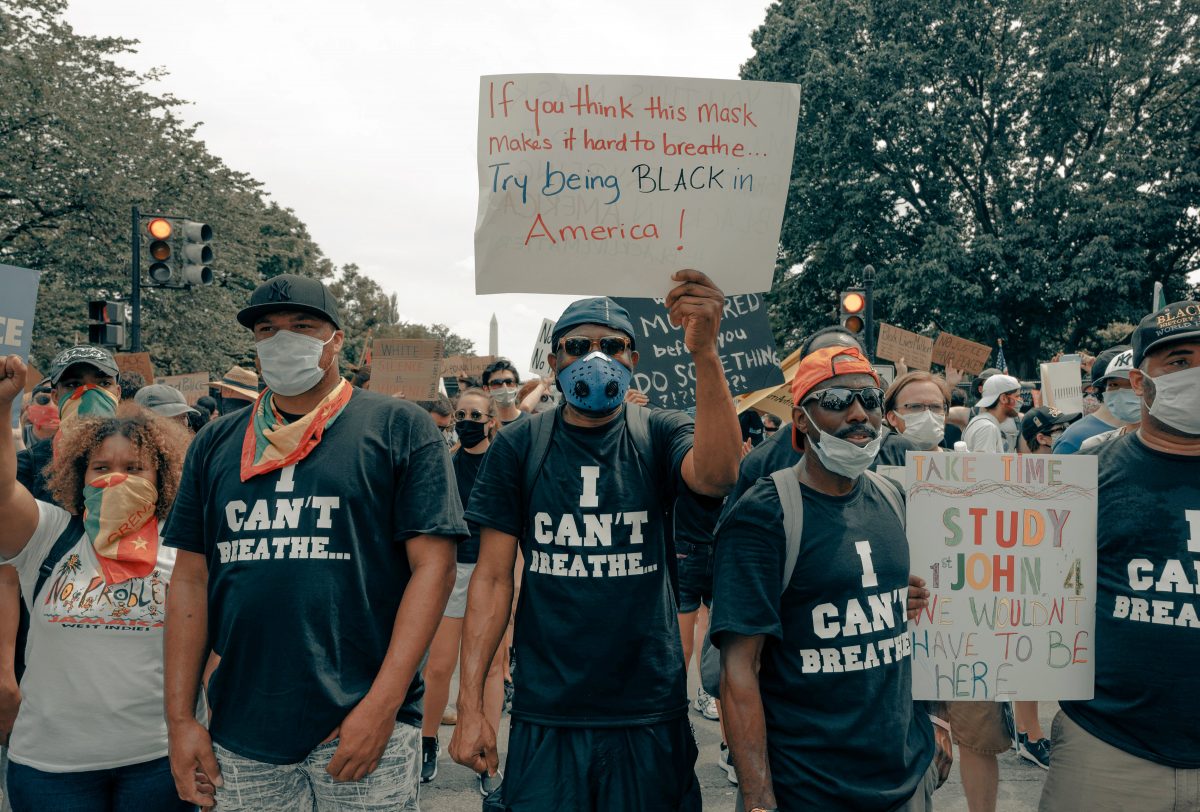
(RNS) — As racial tensions have risen in recent months, a new report reveals that some White Christians are becoming less motivated to act on racial justice, and an increasing share say there is “definitely” not a race problem in the country.
“Christians generally, and practicing Christians in particular, have changed their minds on addressing racial injustice, but if anything, they’re actually moving away from being motivated,” said David Kinnaman, president of Barna Group.
“It’s not a majority of Christians, but it is a segment of Christians who say they’re unmotivated or not at all motivated to address racial injustice,” he said, adding that the group has “essentially doubled” in the last year.
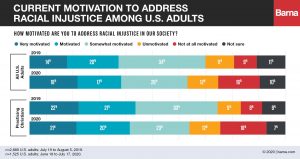
Thirty percent of practicing Christians — people who identify themselves as Christians, have attended worship in the past month, and claim to strongly prioritize their faith — say they are not motivated to engage in matters of racial injustice (12% unmotivated, 18% not at all motivated). That’s an increase from 2019, when 17% said they were not motivated (9% unmotivated, 8% not at all motivated).
That was one of the most surprising findings of the summer study on race by Kinnaman’s California-based research firm.
“I think there was a lot of anticipation that the last three, four months might change Christians’ perspectives on some of these things, but when you look at White, practicing Christians, the same pattern holds true,” he said. “The motivation to address racial injustice has declined.”
Meanwhile, for Black self-identified Christians, the motivation to address racial injustice increased from 63% who were motivated or very motivated in 2019 to 70% in 2020 (the sample size for Black practicing Christians was too small in 2020 to use as a comparison, according to Barna).
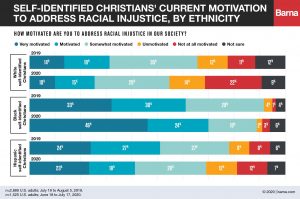
The findings are based on an online survey of 1,525 U.S. adults between June 18 and July 6, a time period characterized by national protests over the death of George Floyd, a Black man who died under the knee of a white Minneapolis police officer in May, as well as the deaths of Ahmaud Arbery in Georgia and Breonna Taylor in Kentucky.
Kinnaman said Barna separately conducted a survey of 400 Protestant pastors in June and found the vast majority (62%) said their church had made statements on the protests and unrest that followed Floyd’s death on May 25. More than 7 in 10 (72%) agreed strongly that the church “has a responsibility to publicly denounce racial discrimination.”
“They were more open to and more open-hearted to the issues that were being raised through the summer,” he said, comparing pastors to their congregants.
But many U.S. adults in general — and practicing Christians specifically — continue to think there is not a race problem in the country, the report found. The number of U.S. adults who said there “definitely” is such a problem remained nearly the same from 2019 to 2020, dropping slightly from 49% to 46%, while practicing Christians’ response similarly dipped slightly from 46% to 43%.
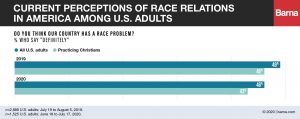
“Instead of going in the direction you might expect it to go, where people would grow in their awareness of a race problem,” Kinnaman said, “if anything, people’s sensitivity to a race problem has declined or it’s at least the same.”
Despite the evidence of the 30 percent unmotivated, “especially reluctant group of white practicing Christians,” there are signs that a larger segment of practicing Christians is willing to take action to improve their understanding of racism.
Asked if they would take certain steps “if (those steps would) improve racial equality,” practicing Christians said they would read a book about racism (62%); attend diversity training (48%); attend implicit bias training (40%); take a course on race and ethnicity (46%); support some form of reparations (40%); change the type of candidate they typically vote for (42%); change their news media consumption habits to be more justice oriented (46%); and change their spending habits to be more justice oriented (47%).
“There’s a fair amount of engagement on these issues among practicing Christians and a willingness to engage on those, especially if they promote racial equity,” Kinnaman said.
A particularly motivated if smaller group of practicing Christians has already taken action, saying they did one or more of the following in the weeks after Floyd’s death: watched a documentary to better understand what’s happening (15%); spoke with someone in the Black community to better understand what’s happening (14%); educated myself further on racial justice terms such as “systemic racism,” “implicit bias,” “colorism,” “intersectionality,” or “systemic analyses” (14%).
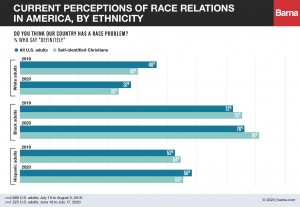
The report also showed the role church leaders may play in influencing the practicing Christians in their congregations.
More than a third — 36% — of practicing Christians cited religious leaders as the most influential among a list of the types of leaders they are listening to about racial justice. But 29% of practicing Christians said clergy were among those they thought needed to “step up as a leader regarding racial justice.” The only leader who ranked higher in the need-to-step-up category for those Christians was the U.S. president, at 35%.
Asked what they “need to feel more able to end racism,” a quarter (26%) of practicing Christians said “support from my religious community.” That answer ranked fourth after support from local (34%) or national (32%) government and “education” (30%).
The research, conducted in partnership with Dynata, a Texas-based research firm, has an overall margin of error of plus or minus 1.8 percentage points.
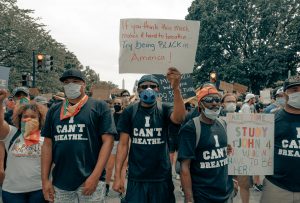
Demonstrators hold signs and wear shirts about breathing while protesting against racial injustice in Washington, D.C., on June 6, 2020. (Clay Banks/Unsplash)

